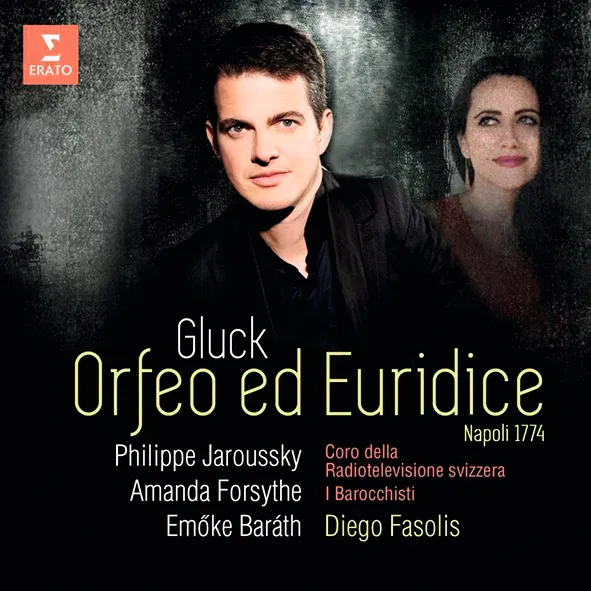
Gluck Orfeo ed Euridice Philippe Jaroussky, Amanda Forsythe, Emöke Baráth; Coro della Radiotelevisione svizzera; I Barocchisti/Diego Fasolis Erato 9029570794 77:40 mins
This latest recording of Gluck’s Orfeo ed Euridice, an opera already abundantly represented on disc, does in fact offer something new: not the original score, but its adaptation as performed for Neapolitan royalty 12 years after the 1762 Vienna premiere, with a third act significantly different from that of the original. When originally staged, the Viennese opera hit home because of its revolutionary qualities – brevity, expressive plainness, concentration of musical effect for dramatic purpose – and its immense local impact soon set Europe’s cognoscenti buzzing. Yet that very brevity made Gluck’s revolutionary new approach to opera disconcerting to most contemporary tastes, with the result that when mounted elsewhere it tended to get rearranged.
For London’s 1770 Orfeo staging, JC Bach added choruses, airs and recitatives ‘to make the Performance of a necessary length for an evening’s entertainment’. For Naples the opera was not lengthened – the reverse during the finale, its dances excised – but in Act III Euridice’s duet with Orfeo and minor-key solo aria were replaced with elaborate coloratura showpieces (their anonymous composer assumed to be the aristocratic dilettante Diego Naselli). Impressively delivered here by Amanda Forsythe’s Euridice, their showy banality relative to their echt-Gluckian surroundings can nevertheless be taken as vindication of the composer’s original inspiration, above all his self-proclaimed search in Orfeo for ‘a beautiful simplicity’.
This can’t have been the purpose of the lively conductor Diego Fasolis and much-admired countertenor Philippe Jaroussky in excavating the Naples edition used in this recording; but for me, at least, it’s the conclusion to which its experience inescapably leads. Jaroussky manages the edition’s higher keys well enough (Vienna’s Orfeo was a castrato alto, Naples’s a soprano) and sings sweetly so long as forceful declamation isn’t required, while overall revealing himself an Orfeo of insufficient tonal strength, verbal vividness and dramatic intensity. In comparison, indeed, with the Vienna Orfeo’s most powerful available recordings, John Eliot Gardiner’s and René Jacobs’s, I found this one simultaneously ‘interesting’ and a damp squib.
Max Loppert